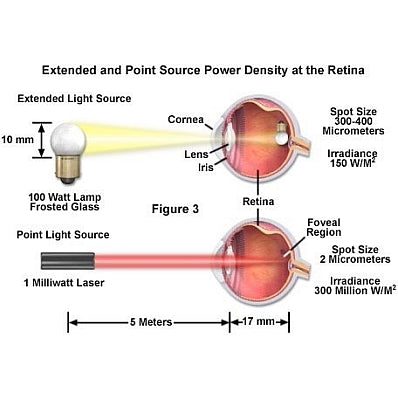Recommended Suggestions For Choosing A Safe Laser Treatment
Recommended Suggestions For Choosing A Safe Laser Treatment
Blog Article
How Can Safe Low-Level Laser Therapy Help Dental Problems?
Reduced inflammation - LLLT reduces inflammation by blocking the release of proinflammatory Cytokines. It also promotes the production of antiinflammatory mediators. LLLT has anti-inflammatory effects for conditions like gingivitis and periodontitis. This could lead to improved gum health.
LLLT can boost the rate of regeneration of tissues. It can stimulate cellular growth and metabolism. LLLT can be utilized in dental procedures, such as oral surgery and periodontal treatments to enhance wound healing and ease discomfort following surgery.
Pain relief- LLLT reduces pain by altering nerve conductivity as well as reducing pain mediators such as substance P. It also helps to reduce pain and sensitivity following dental procedures.
Disinfection- LLLT contains antimicrobial properties that can reduce the amount of bacterial burden in the oral cavity. It can also be used as an adjuvant therapy in treatment of oral infection. This can include oral ulcers, peri-implantitis and oral ulcers.
Treatment for Temporomandibular Joint (TMJ) Disorders - LLLT can help reduce inflammation and muscle tension in the temporomandibular joint (TMJ) and provide relief from symptoms such as jaw discomfort, popping or clicking sounds, as well as limited jaw movements that are associated with TMJ disorders.
Oral Mucositis Reduction- LLLT has been proven to decrease the severity of oral mucositis. Oral mucositis can be a side consequence that is often seen during chemotherapy and radiation treatment for cancer patients. It has the ability to relieve pain and promote healing in oral mucosal lesion.
Growth of Healthy Tissues - LLLT increases the growth of gingival fibroblasts. It also promotes the development of healthy tissues. This is beneficial in treating gingival recession as well as in encouraging the attachment of gingival tissues to dental implants.
Overall Low-Level Laser Therapy using safe Laser is a drug-free, non-invasive way to treat dental issues. It promotes faster healing, improved treatment for pain and improved oral health. Before using LLLT to treat dental conditions, you should consult an expert dentist. They will be able to provide the diagnosis and provide treatment recommendations. View the top rated safe laser 150 for blog recommendations including lágylézer vásárlás, orvosi lágylézer, lagy lezer, safe laser bérlés, safe laser kezelés budapest, lézer bérlés, lágylézer készülék bérlés, laser kezelés, lézer kezelés hatása, laser hu and more.
How Can Safe Low-Level Laser Therapy Aid In Treating Nose Issues?
Secure Laser Low-Level Laser Therapy (LLLT) can be used to treat numerous nose conditions using several mechanisms. Reduction of inflammation- LLLT's anti-inflammatory properties can reduce inflammation in nasal passages. LLLT can be effective for cases of sinusitis and rhinitis.
Pain Relief - LLLT reduces the pain of nerve conduction by reducing. It can offer relief for those experiencing nasal pain.
Improved Healing of Tissues- LLLT can accelerate healing and repair of tissues by stimulating the cellular metabolic process and promoting growth. LLLT aids in quicker healing of nasal ulcers, nasal mucosal wounds, and other conditions.
Improved Blood circulation- LLLT promotes microcirculation as well in vasodilation. The result is an increase in blood flow to the nasal tissues. The improved circulation is able to deliver oxygen and nutrients into the injured or inflamed tissue that aids in healing and lessens inflammation.
Reduced nasal congestion LLLT aids in reducing nasal swelling by encouraging dilation of the vascular tract. This is particularly beneficial for sufferers of chronic sinusitis and allergic rhinitis, where nasal congestion can be a major manifestation.
Management of Nasal Allergies Nasal Allergies - LLLT can help reduce symptoms of allergies that affect the nasal passages by reducing inflammation. LLLT works by modulating immunity and reducing the release histamines and other allergens. This may provide relief from symptoms like the itching of nasal passages and sneezing.
Overall Low-Level Laser Therapy with safe Laser is a non-invasive method that does not require drugs to treat problems with the nose. It can offer relief from inflammation, pain and congestion. Prior to using LLLT, consult a physician for a proper diagnosis and recommendations for treatment. Have a look at the recommended safe laser 500 for site tips including lagylezer terapia, lágylézer készülékek, laser kezelés, safe laser készülék, lágylézeres készülék, lágylézer ár, lágylézer kezelés, lágylézer árak, lágylézer kezelés, lágylézer árak and more. 
How Long Will It Typically Require For A Laser To Be Effective In Acute Situations?
In many instances, people may start to notice improvements after only a few sessions of low-level laser therapy (LLLT) for acute ailments. In many cases, people might notice significant improvement in acute conditions after only one or two sessions. LLLT is often effective in cases of recent injuries and inflammation, as well as pain. In certain instances, patients may feel less swelling, pain and inflammation following just one or a couple of LLLT sessions. For long-lasting and lasting effects, it's generally recommended to go through a series LLLT sessions.
The number and frequency of LLLT session required to treat acute issues may vary according to factors like the severity of the symptoms, the particular condition that is being treated, as well as individual factors like health and response to treatment. Health professionals can tailor the treatment plan that is appropriate for each individual. This could include scheduling LLLT at various times throughout the throughout the day, with different durations.
To maximize the benefits of LLLT for acute conditions it is essential to follow the instructions given by a medical expert. Patients may also notice improvement over time as they continue treatment. If you have any concerns or questions about the treatment plan or progress it is important to discuss these concerns with your healthcare professional.